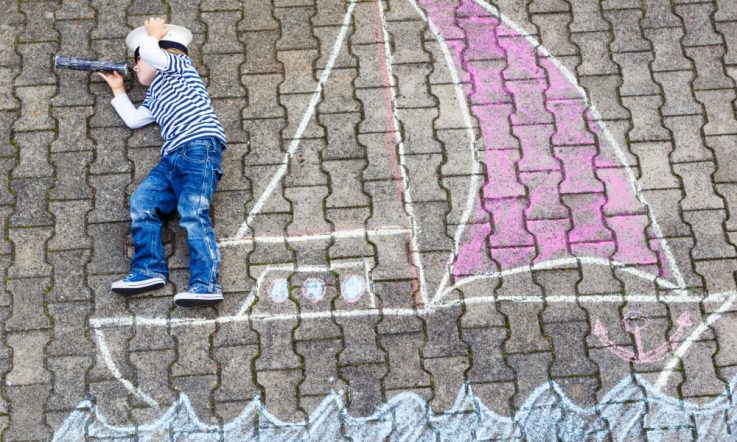Without doubt the last two years of the pandemic have been challenging for people from all nations and all walks of life. It has further highlighted the many inequities that exist across the globe, but, in many ways, brought people together as they faced a common threat.
Teachers around the world have, with great agility, flipped between remote and face-to-face learning. They have collectively mourned the lack of social interaction for their students and missed the supreme satisfaction of the ‘normal’ daily interactions that being in a classroom brings.
As students across Southeast Asia transition back to face-to-face learning, teachers too are facing a transitional time as they endeavor to prepare their students for the future.
In this era, a teachers' role is no longer limited to the teaching and knowledge of academic outcomes. Great teachers form partnerships with their students to holistically develop self-efficacy, foster curiosity and to learn according to their interests and talents. Teachers and students work together to adapt to new world trends and mitigate global issues.
Successful teachers, who wish to be role models and partners to their students, must develop the competencies of academic, professional, personal and social skills in order meet the needs of their students in a rapidly changing global environment. To support students in their quest to be active and responsible global citizens teachers must be adept in teaching the skills of leadership, higher order thinking, ICT, collaboration, communication and problem-solving.
In 2018, for the first time, the PISA (Programme for International Student Assessment) test cycle included a global competence assessment. The inclusion of this assessment speaks to the importance of preparing our students to not only navigate our increasingly complex and connected world, but to thrive, and find success and joy within it.
The OECD’s model of global competence mirrors the PISA assessment and is surrounded by the corresponding values attitudes, knowledge and beliefs needed to grow and develop as a globally competent individual. Developing these capabilities is as important to us as teachers as they are to our students. For how to model and inspire our students without being in possession of those qualities ourselves?
Indonesia is an example of a pluralistic nation consisting of people from different ethnic groups, traditions, customs, cultures, and local languages. This diversity is reflected in the classroom, with students from varied backgrounds learning and growing together.
Teachers as advocates of global competence must build a culture of open-mindedness and mutual respect to develop the positive values and attitudes that will support their students in their interactions with people from diverse backgrounds. In addition, teachers must lead students to understand and be sensitive to developing global situations and issues, allowing students to understand the positive and negative implications of these issues on their local communities.
Teachers who are globally competent guide their students to develop a global mindset that is open to new thoughts and ideas. A mindset that can develop cross cultural networks, adapt to plural and heterogeneous society, accept differences, and celebrate diversity. Teachers with a global perspective will collaborate with other parties to advance education in innovative and creative ways while still upholding values in local communities and other countries.
Some of the efforts that can be made to improve global competencies that have an impact on students are:
- Teachers and students together create a classroom atmosphere that celebrates diversity
- Teachers develop student learning experiences that allow interaction with diverse cultures
- Encourage students to connect, communicate and learn from students in other countries using ICT
- Facilitate regular intercultural communication between students
- Encourage students to learn other languages and about other cultures
As you can see, communication is a pivotal skill in the development of global competencies. Indeed, effective communication is key to success in many spheres of life and the basis of developing strong and healthy relationships.
The ability to communicate allows us to connect well with others, to learn, to share, to laugh, to cry. Sometimes communication is easy, and sometimes it can be a challenge. Additional barriers caused by language or cultural differences can at times make the task of communicating effectively seem insurmountable.
However, communication can be a medium and source of intercultural knowledge exchange, enriching the benefits of diversity and pluralism and creating opportunities for work and collaboration between nations.
How do you increase your intercultural capability? How can you communicate cross-culturally? Where can we find opportunities, as teachers, to share ideas, collaborate and innovate in the global space?
References
OECD. (2020). PISA 2018 Results (Volume VI): Are Students Ready to Thrive in an Interconnected World? OECD Publishing. https://doi.org/10.1787/d5f68679-en
Undang-Undang No. 14 Tahun 2015 Pasal 8 tentang Guru dan Dosen. Indonesian Law No. 14 of 2015 Article 8. https://p3gtk.kemdikbud.go.id/read-news/undangundang-republik-indonesia-nomor-14-tahun-2005-tentang-guru-dan-dosen



